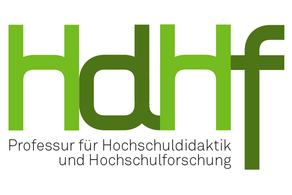Students as Stakeholders
In the Policy Context of the European Standards and Guidelines for Quality Assurance in Higher Education Institutions
Bologna Process Researchers' Conference "Future of Higher Education"
Bukarest, Rumänien
25. November 2014
Abstract
Student participant in higher education governance in Europe in recent years has become more salient as Bologna inspired developments in quality assurance have been increasingly spread across the European countries and universities. The European Standard and Guidelines for Quality Assurance can be seen as one of the major Bologna related documents aimed at furthering the role of students as stakeholders in internal quality assurance processes of higher education institutions (HEIs) (Leišytė and Westerheijden, 2013). Still little is known about students' real position or influence on internal quality assurance processes in European HEIs. To overcome this research gap, this paper examines the role of students as stakeholders in HEIs' internal quality assurance procedures within the policy context of the European Standards and Guidelines for Quality Assurance in two HEIs in two countries. It is the paper is to understand to what extent are students perceived as stakeholders in internal quality processes at different higher education institutions in the context of ESG? Specifically, how are students actively involved and influence internal quality assurance at higher education institution? And to what extent do higher education institutions consider the European Standards and Guidelines for Quality Assurance regarding student involvement to internal quality processes?
The study is an exploratory comparative case study of one German and one Dutch university faculty which draws on a range of qualitative methodologies, including documentary desk research, empirical data from 8 semi-structured interviews with quality officers and academic staff and a student survey conducted in 2013. To determine students' stakeholder position in HEIs internal quality assurance procedures this study applies the stakeholder theory of Mitchell et al. (1997), who distinguish between the three different stakeholder types: Latent, Expectant and Definitive Stakeholders.
The findings of this study have revealed that the role of students as stakeholders majorly differs between the studied HE institutions. While students in the Dutch case study enjoy a rather high stakeholder position as weak Definitive stakeholders, students in the German case study have a comparatively low stakeholder position as weak Dependent Stakeholders. In both cases, internal quality assurance systems are majorly in line with the European Standards and Guidelines for Quality Assurance, though higher education institutions' compliance evolves rather unconsciously. Thus, in this study the ESG do not seem to have a major impact on students' role as stakeholders in internal quality assurance.
References
- European Association for Quality Assurance in Higher Education (ENQA), (2005). European Standards and Guidelines for Quality Assurance in the European Higher Education Area.
- Klemenic, M. (2012). The changing conceptions of student participation in HE governance in the EHEA. In Curaj, A., Scott, P., Vlasceanu, L., & Wilson, L. (Eds.), European Higher Education at the Crossroads (pp. 631-653). Springer.
- Kohoutek, J. (2009). Implementation of the Standards and Guidelines for Quality Assurance in Higher Education in the Central and East-European Countries – Agenda Ahead. UNESCO CEPES.
- Kohoutek, J., Land, R., & Owen, C. (2013). Identifying barriers in promoting the European Standards and Guidelines for Quality Assurance at institutional level (IBAR). Final Synthesis Report IBAR Project.
- Murray, H. G. (1997) Does Evaluation of Teaching Lead to Improvement of Teaching? International Journal for Academic Development, 2(1), 8-23.





